Wait until Spring, Bandini, by John Fante
Wait until Spring, Bandini is the 1938 novel of now relatively little known author John Fante. It is the story of Svevo and Maria Bandini, dirt-poor Italian immigrants living in small town Colorado, and of their three American-born children, Arturo, August and Federico. It is a novel about the impact of poverty and the American immigrant experience. It is a coming-of-age novel, and a novel of the Great Depression.
Hardly unfamiliar territory then. Indeed, it’s hard to avoid comparisons with authors such as Erskine Caldwell or John Steinbeck. But, and here’s the thing, from what I’ve read of each (and that’s admittedly only one Caldwell and one Fante, though several Steinbeck) he’s better than either of them.
Caldwell makes monsters of the poor, the characters of Tobacco Road (which I discuss here) are reduced to living as less than beasts, portrayed as lacking even the empathy of a lizard. Steinbeck goes the other way, his poor are virtuous, saintly even, good people caught in terrible times. His desire to preach, to effect social change, gets in the way of the credibility of his characters. Fante is the Goldilocks of this trio, the Bandinis are neither monsters nor saints, rather they are absolutely and convincingly human and Wait until Spring, Bandini is in part a triumph precisely because its subject matter is so well known and yet the novel itself is so fresh.
Wait until Spring, Baldini is essentially a plotless novel. It opens with Svevo Bandini coming home having lost what little money he has gambling, his wife is a virtuous and devout woman, patiently waiting for him even knowing what he has done and (and this is the first unusual note) still desiring him – her faith and her physical passion for her husband are cornerstones of her life.
The Baldini’s are poor, deep in debts they sometimes pay but never quite clear. Svevo is a bricklayer, but the book opens in winter and in winter there is no work to be had. The Bandini’s raise a handful of chickens, and so eat eggs for dinner every night, Svevo goes to the pool hall, Maria counts her rosary beads, the boys fight and argue and live in fear and awe of their father. They are a family. Loud, argumentative, passionate, Italian-Americans in the classic American sense (if you don’t know what I mean, go buy a Scorsese movie).
What makes the novel then, in the absence of a plot and in the face of such ordinary characters, is the prose. Fante writes with an immediacy and clarity of style that I found both refreshing and at times just plain fun. He’s a great stylist, easy to read and actually highly accessible, particularly so given quite how good he is. The novel takes a few pages to get going, early on it reminded me (and this is not here a compliment) of James Ellroy of all people. Having a tendency to say things. Abruptly. And in threes. But that, thankfully soon passes and from there there’s a feel for dialogue and character which just shines through the page.
Here, Arturo knows a secret and his younger brother wishes to learn it:
August was ten; he didn’t know much. Of course, he knew more than his punk brother Federico, but not half so much as the brother beside him, Arturo, who knew plenty about women and stuff.
‘What’ll ya give me if I tell ya?’ Arturo said.
‘Give you a milk nickel.’
‘Milk nickel! What the heck! Who wants a milk nickel in winter?’
‘Give it to you next Summer.’
‘Nuts to you. What’ll ya give me now?’
‘Give you anything I got.’
‘It’s a bet. Whatcha got?’
‘Ain’t got nothing.’
‘Okay. I ain’t telling nothing, then.’
‘You ain’t got anything to tell.’
‘Like hell I haven’t!’
‘Tell me for nothing.’
‘Nothing doing.’
‘You’re lying, that’s why. You’re a liar.’
‘Don’t call me a liar!’
‘You’re a liar if you don’t tell. Liar!’
He was Arturo, and he was fourteen. He was a miniature of his father, without the mustache. His upper lip curled with such gentle cruelty. Freckles swarmed over his face like ants over a piece of cake. He was the oldest, and thought he was pretty tough, and no sap kid brother could call him a liar and get away with it.
Although there is no plot as such, there are incidents, strands to follow. One of these is the visit of Maria’s mother, Donna Toscana, an obese and sour woman who loathes Svevo and uses her visits as an opportunity to berate her daughter for ever having married such a man. Each time she comes, she writes first and on arrival of the letter Svevo goes out on a drunk so as to avoid her, returning sometimes days later and so giving yet more fuel to Donna Toscana’s vitriol. This time, his drunk takes him to what may be the arms of another woman, plunging the whole family into crisis.
Another strand though, and perhaps the central one, is the adolescence of Arturo Bandini. Recently, Kevin of Kevinfromcanada and Trevor of themookseandthegripes both reviewed a novel (Fall) which focuses among other things on what it is like to be an adolescent boy. I wasn’t persuaded by what I read of Fall, it sounded to me to have got its subject matter badly wrong. Fante here covers that ground, and does so with an accuracy that makes it almost uncomfortable to read:
His name was Arturo, but he hated it and wanted to be called John. His last name was Bandini, and he wanted it to be Jones. His mother and father were Italians, but he wanted to be an American. His father was a bricklayer, but he wanted to be a pitcher for the Chicago Cubs. They lived in Rocklin, Colorado, population ten thousand, but he wanted to live in Denver, thirty miles away. His face was freckled, but he wanted it to be clear. He went to a Catholic school, but he wanted to go to a public school. He had a girl named Rosa, but she hated him. He was an altar boy, but he was a devil and hated altar boys. He wanted to be a good boy, but he was afraid to be a good boy because he was afraid his friends would call him a good boy. He was Arturo and he loved his father, but he lived in dread of the day when he would grow up and be able to lick his father. He worshipped his father, but he thought that his mother was a sissy and a fool.
That for me is true, the emotion of it, the sheer intensity of feeling. There are similar passages detailing his feelings when he sees his friends’ mothers or girls at school, he is at an age where he can barely glance at a woman without being overwhelmed. He sees one friend’s mother sweeping the floor, “his hot eyes gulping the movement of her hips.” For me, this utterly persuaded, this is how those years were for me too and it’s rare I’ve seen it captured so well, so clearly.
Fante is marvellous too on the sentimentality of the young, on how they live in a world more romantic than real. Arturo is in love with a classmate, Rosa Pinelli, a girl who pays him no attention at all and yet who he thinks of as his girl. He loves her, but is troubled by the thoughts he sometimes has of her, he is caught between the affection of childhood and the desire of adulthood. Even in church, he can barely concentrate, the mere thought of her leading his mind to ideas that will need to be unburdened in the confessional later. Arturo fantasises of becoming a big shot, of playing for the Cubs and making her really his girl, of impressing her with newly discovered links to Italian nobility, or giving her gifts that will show her the kind of guy he really is. He doesn’t talk to her though, he doesn’t know how.
It was a block out of his way, but he wanted to pass Rosa house. The Pinelli bungalow nestled beneath cottonwoods, thirty yards from the sidewalk. The blinds over the two front windows were down. Standing in the front path with his arms crossed and his hands squeezed under his armpits to keep them warm, he watched for a sign of Rosa, her silhouette as she crossed the line of vision through the window. He stamped his feet, his breath spouting white clouds, no Rosa. Then in the deep snow off the path his cold face bent to study the footprint of a young girl. Rosa’s – who’s else but Rosa, in this yard. His cold fingers grubbed the snow from around the print, and with both hands he scooped it up and carried it away with him down the street …
In places, this is a very funny novel. Arturo’s forced service as an altarboy, his superstition, the clash of his religion with his fundamentally rebellious nature. At other times, it is full of quotidian tragedy. Petty thefts of spending money from your mother’s purse, arguments that wound more because they are born of knowledge and love, the sheer misery of eating the same thing day after day and of wearing clothes that don’t fit and that shout your poverty to the world. Having grown up myself in a council flat with unemployed parents, there’s a lot here I recognise, the sheer anger of being poor, though transplanted through time and across continents. I’ve no idea of Fante’s own circumstances, nor do I care, but I’m quite confident that whatever they were he knew or imagined the truth of poverty with remarkable accuracy. It’s not noble, as Steinbeck paints it, but nor is it so terrible as Caldwell has it. Being poor can be brutalising, but it doesn’t stop you being human. Fante remembers that, and writes a better book because of it.
I’ve quoted a fair bit from the novel here, partly as I wanted to show the dialogue and the gift for description, I’m going to allow myself one last quote. This last one just to show how, among the poverty, infidelity, adolescent angst and family strife, Fante still manages to avoid making this novel in any way heavy going. Also, I just loved this passage, and why have a blog if you can’t indulge yourself on occasion?
Arturo Bandini was pretty sure that he wouldn’t go to hell when he died. The way to hell was the committing of mortal sin. He had committed many, he believed, but the confessional had saved him. He always got to confession on time – that is, before he died. And he knocked on wood whenever he thought of it – he always would get there on time – before he died. So Arturo was pretty sure he wouldn’t go to hell when he died. For two reasons. The confessional, and the fact that he was a fast runner.
Although Fante is now fairly obscure, it’s the nature of the blogosphere that deserving titles spread from blog to blog. John Self of Asylum reviewed this novel here, and Kevin of kevinfromcanada reviews the whole Bandini quartet here. I’ve sought here not to duplicate their thoughts, and they both quote different passages than those I chose, I of course recommend both writeups unreservedly. John’s also contains some interesting links for further reading.
Kevin though convinced me to read Fante, and so has my distinct thanks. Without his advocacy, I likely wouldn’t have known Fante’s name let alone have read him. That said, there is one small point that at the moment I disagree with Kevin on. Kevin ends his piece commenting that Fante doesn’t rank with Steinbeck. I grant I’ve only read one Fante so far, and I admit I don’t know if I’d call him one of the great writers (actually, I’d hate to only read the greats, whoever they may be), but for me right now it’s more that Steinbeck doesn’t rank with Fante. Either way, I’m glad that he’s getting some belated recognition, and I fully intend to read the rest of the quartet.


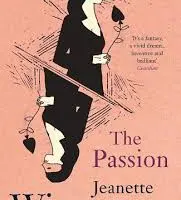

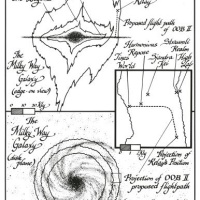
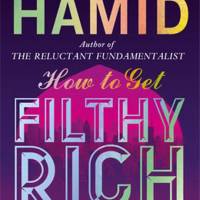
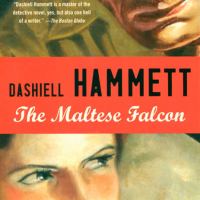
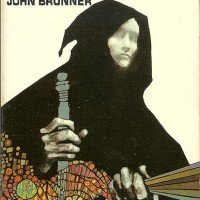
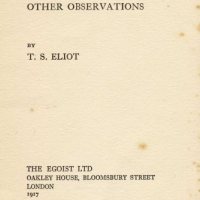
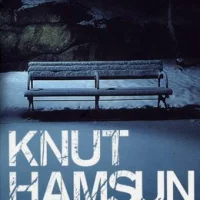



Umm…..can I recant on the Steinbeck judgment? I know I can edit my own blog, bu that seems like cheating. Whatever, as of now, I remember Fante better. This review does an excellent job of portraying the first book in the tetralogy — I can’t wait until I see what you think of the other three. And I promise to be more careful in the future about making author comparisons.
Great stuff. Now get yourself 1933 Was A Bad Year. If it interests you, you can always try his son, Dan Fante too.
Always Kevin, always tricky things though author comparisons aren’t they? Here I am slating Caldwell, but Stewart (who I see is way ahead of me on the Bandini trail) rates him much higher.
Stewart, I see you’ve blogged 1933 here: http://booklit.com/blog/2008/11/16/john-fante-1933-was-a-bad-year/ and the Caldwell (which I didn’t take to at all) here: http://booklit.com/blog/2007/07/24/erskine-caldwell-tobacco-road/ – in fact I see you introduced Kevin to Fante. It’s a small blogosphere at times.
Interesting stuff, I’ll read both tomorrow in more detail when I’m a little fresher and comment there.
I really enjoyed Steinbeck’s East of Eden but wasn’t that excited about anything else.
Funny thing–I picked up Ask the Dust the other day and after flipping through it (and reading the first few pages) I put it back down.
I really love Steinbeck. I haven’t read East of Eden yet, but read quite a few of the others (Mice, Grapes, Charlie, Pearl, Cannery Row…) and there is really not many writers I like as much as him.
So I guess I’ll have to give Fante a try.
I’ll be interested to hear what you think if you do Nick, the Fante’s quality stuff. I’ve not been able to find the sequels yet annoyingly, but will be ordering them online shortly so I can work my way through.
Regarding Steinbeck, and avoiding Grapes or Mice, what would you most recommend if I wanted to give him another chance?
Well, you’ll probably receive the sequels much faster than I the first book (that I just ordered on betterworldbook) since my living in Kenya doesn’t help.
‘The Pearl’ is clearly not of the same caliber than the others but is a pleasant reading. I would categorize it as a good fable for children.
I really enjoyed ‘Travels with Charley’. It is sometimes outrageously funny. Steinbeck’s insight on future (now current) issues, notably environmental ones, really infuriates me against the fact nothing was done earlier. And I really want to check out Nevada now.
My favorite Steinbeck would be ‘Cannery Row’. Even when I first read it its cast of characters felt like old friends I was only too glad to meet again.
‘Once there was a war’ is a collection of Steinbeck’s dispatches during the Second World War. It depicts the common soldier’s sort through stories that do not reflect truth, since there were censored to glorify the perfect American soldiers, but that are still interesting literature.
I’ll take a look at Travels and at Cannery, thanks Nick.
I would also recommend a read of Steinbeck’s The Moon Is Down. I must return to reading through his work.
I am with you on Steinbeck, Max, though I have read most of his work. My favorite is a bit more ambiguous, though. The Winter of Our Discontent goes away from earlier themes. And while the moralizing is somewhat still there, it is much less played up. The protagonist is certainly no saint. Still, I think I’d rate Bandini above even that piece. Today, anyway.
I read your review after I wrote mine on The Road to Los Angeles.
It gives a good idea of the atmosphere of Fante’s novels and it seems it reached you personally. Thanks for sharing that. I believe you will enjoy the second volume too. It’s funny and full of tenderness for Arturo. I feel Fante has a fatherly regard for his fictional alter-ego.
I saw the discussion of Steinbeck, I tried Of Mice and Men and couldn’t finish it, I got bored. I studied The Pearl at school with a terribly boring teacher and that didn’t help. Maybe I should try another one.
I see I did the almost inevitable grammar mistake named “comma splice”. It’s very French, I can’t help it… Sorry if it hurts your eyes. 🙂
I’ll read your review with interest Bookaround. Mice and Men, eh, I had to do it at school and it didn’t endear me to him.
As for comma splices, I use them all the time, a habit I picked up from reading French fiction and from Anthony Powell. I got told off about it once at the Guardian blogs by Phillip Hensher no less. He was right, but it’s a hard habit to break.
Anyway, it doesn’t hurt my eyes. Much worse, it reads naturally to me…
Being French, I of course do this a lot.
But after thinking a little about it, I really do not see any problem.
It might even be a good way to give a voice to a character or to make sentences lighter and more natural (at least for us French), as well as increase the pace. I really like it.
James Joyce would have laughed at people making this statement.
McCarthy, I think, doesn’t use semi-columns. Ever.
Not that any of this is really relevant.
I have finally read East of Eden and although the writing is as always much pleasant to read, the story wasn’t really to my taste, probably because of the caricaturization of the characters and the repetition of history (?) through time.
The ending was elegant but unworthy of Steinbeck.
Max, it’s interesting to hear that translators keep the sentences with the comma when they translate from French to English. That let me think it’s not such a big mistake.
Translators wouldn’t use the future tense after “when” even if it’s the rule in French, wouldn’t they ?
Nick, maybe James Joyce would have laughed at me, but I don’t pretend to be a writer. Grammar liberties are good for artists, not for common people. For them, it is genius, when for us, it is just a mistake.
Pingback: Los Angeles, give me some of you! | Pechorin's Journal
Pingback: The 1938 Club: welcome! – Stuck in a Book
Pingback: Excerpt From John Fante’s ‘Wait Until Spring, Bandini’ – Wisdom Canopy